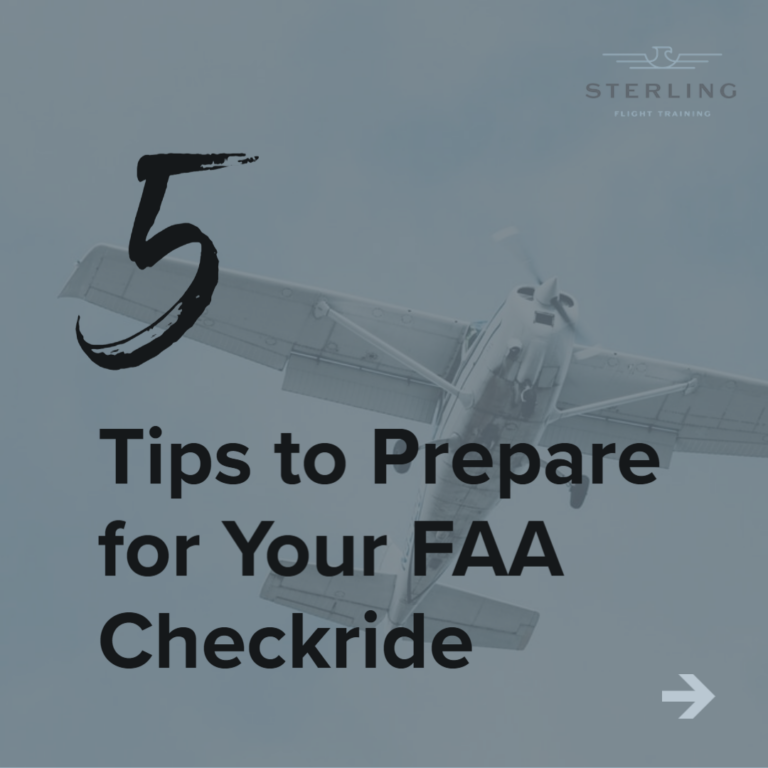It’s the moment of truth (MOT!) You’ve prepared for this day for months; you’ve studied, trained, planned and trained some more. Now it’s time for your checkride as a culmination of your flight training. This event will determine if you become a certified pilot, achieve that rating or move on to your next license.
It’s only natural to be nervous, but if you properly prepare for your examination, your chance of success increases.
Checkrides are divided into two parts – 1) an oral exam and 2) a practical flying test. Assuming successful completion of the oral exam, you will move onto your flight exam which requires you to fly as pilot-in-command alongside the examiner. You will be graded on your completion of flight maneuvers and procedures. Inability to complete said tasks, or the need for the examiner to take over at any point, will result in a failed exam.
That’s why preparation is key. Here are five things you can do to make sure you are checkride-ready when the big day comes.
- Know Your Airplane
Obviously having a plane ready for your checkride is a must. Testing in an airplane you are familiar with will greatly reduce your stress around taking the exam. The more comfortable you are, the more likely you are to pass. Do a thorough preflight before your checkride so you have time to address any issues that could arise, and make sure it is legally airworthy. That means all required inspections have been performed, it is within the range of its next 100 hour, logbooks are available and endorsed, etc.
- Know Where You’re Going
When you are plotting the route for your flight plan, make sure you understand everything you can about it, as well as a route to an alternate airport. You should know altitude minimums, airspace requirements, surrounding airports, frequencies, etc. Have contingency plans ready based on possible in-flight emergencies along this route – you may get tested!
- Be familiar with Practical Test Standards
All pilot ratings, from private pilot through to air transport pilot, abide by Practical Test Standards (PTS) documents. Examiners may only test material included in the PTS so it is important to familiarize yourself with them before your checkride. Be sure to read the book in its entirety – not just the areas of Operation and Tasks – don’t worry the books are pretty short!
- Mentally Prepare
Some students may want to cram in additional studying before a checkride. Our advice is to take a break and make sure you get a good night’s sleep leading up to the exam. It’s okay to be nervous but try not to let that nervousness overtake the knowledge you’ve gained. Practice breathing exercises or do a relaxing activity you love before the big day. Take heart in knowing that you’ve reached the point of your exam, because you have been dedicated to your training and have accomplished the necessary milestones – the checkride is just the next one!
- Have Your Paperwork Ready
Flying is the fun part, but there are administrative tasks you must complete prior to your examination. Don’t show up to your checkride without completing these tasks or you will not be able to proceed.
-
- Complete the Integrated Airman Certification and Rating Application (IACRA)
- Collect engine, propeller and airframe maintenance logs
- Get the proper logbook sign offs and endorsements from your instructor
- Obtain your official FAA Knowledge Test results
- Collect current publications and documents such as FARI/AIM, sectional charts and Airport/facility directory and more
